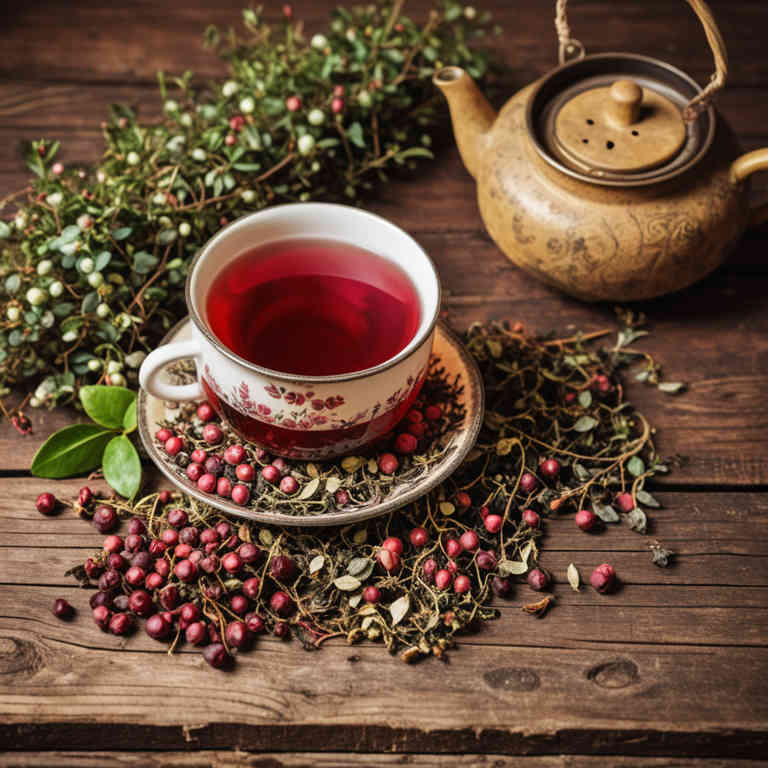Vaccinium macrocarpon tea for medicinal use

Vaccinium macrocarpon tea is a herbal preparation made from the dried berries of the American cranberry plant.
It is commonly used in herbalism for its potential health benefits, particularly for urinary tract health. The tea is believed to support bladder function and may help prevent urinary tract infections due to its antioxidant and anti-inflammatory properties. It is often consumed as a mild, tart beverage and can be combined with other herbs for enhanced effects.
This preparation is valued in traditional and modern herbal practices for its gentle yet beneficial properties.
Uses
Vaccinium macrocarpon tea has been used to treat digestive issues and promote overall wellness for centuries.
Historically, Native American tribes such as the Wampanoag used the berries to make tea for their healing practices, particularly for digestive ailments and as a remedy for scurvy. In traditional medicine, it was also valued for its antioxidant properties and was used to support immune function. Modern uses of the tea include its popularity as a natural remedy for colds, flu, and gastrointestinal discomfort.
Today, it is widely consumed as a health tonic and is appreciated for its tart flavor and potential health benefits.
Benefits
Vaccinium macrocarpon tea has health benefits such as promoting digestive health, supporting immune function, and providing antioxidant properties.
This tea is made from the berries of the cranberry plant, which are rich in proanthocyanidins and other phytochemicals. It may help prevent urinary tract infections by reducing bacterial adhesion to the urinary tract walls. Additionally, it can contribute to heart health by improving blood flow and reducing oxidative stress.
Regular consumption of this tea may also aid in weight management and support overall wellness.
Constituents
Vaccinium macrocarpon tea active constituents include anthocyanins, polyphenols, tannins, and flavonoids.
These compounds contribute to its antioxidant and anti-inflammatory properties. Anthocyanins are responsible for the deep red color of the berries and support cardiovascular health. Polyphenols may help in reducing oxidative stress and improving immune function.
Tannins and flavonoids are believed to aid in digestion and have potential antimicrobial effects.
Preparation
To make Vaccinium macrocarpon tea, begin by gathering dried cranberries, which are the dried fruit of the Vaccinium macrocarpon plant.
Rinse the cranberries thoroughly to remove any dirt or debris. Place the cranberries in a pot and add enough water to cover them by about an inch. Bring the water to a boil, then reduce the heat and let it simmer for 10 to 15 minutes.
Strain the tea into a cup and enjoy it either warm or chilled, optionally adding a bit of honey or lemon for flavor.
Side Effects
Vaccinium macrocarpon tea may lead to gastrointestinal discomfort, including nausea, vomiting, and diarrhea, due to its high acidity and potential irritant properties.
It may also cause allergic reactions in individuals sensitive to the berries or other components of the plant. Prolonged use could potentially interact with certain medications, particularly those affecting the liver or blood pressure. In some cases, it may contribute to digestive issues or upset the balance of gut flora.
It is important to consult a healthcare professional before using this tea, especially for prolonged periods or in combination with other treatments.